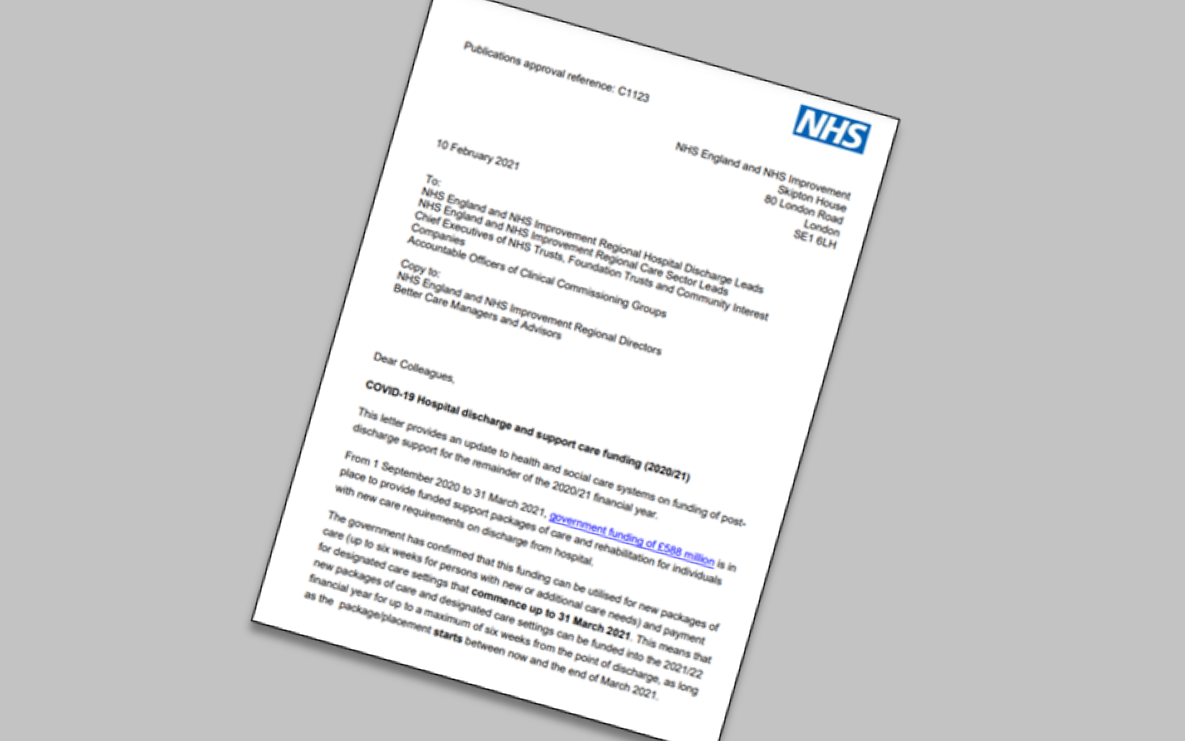The British Geriatrics Society welcomed the announcement in August last year of new funding of £588million to support the health and social care needs of people being discharged from hospital for up to six weeks. When it was announced that this funding would last only up until 31 March 2021, 19 of our senior officers and members wrote to the Chancellor urging him to make this funding recurrent.
We told him that the need for post-discharge support would not suddenly disappear at the end of March 2021, particularly in the context of a second COVID wave. The numbers of people coming out of hospital with ongoing care and support needs would continue to rise. Services needed to be able to plan for the future and ensure that they had the workforce in place to provide support for re-ablement and recovery. While a six-month cash injection was welcome, it did not provide the sustainable funding solution needed.
The recent NHS White Paper, Integration and Innovation, commits to putting in place a legal framework for the ‘Discharge to Assess’ model, enabling people to have their care needs assessed once they are discharged from hospital. Discharge to Assess has been shown to reduce the need for intensive and longer term support when compared to assessment of patients’ needs in hospital. This ultimately enables more people to live independently in their own homes and, in turn, results in fewer readmissions to hospital, reducing acute care costs and creating hospital capacity in the NHS. However, this will only be the case if long-term funding is available. Six weeks of post-discharge care and support must become standard and funding must be available for this through NHS baseline funding.
We understand that NHS commissioners and providers were advised on 10 February by NHS England that the government has not indicated that the funding will continue from 1 April, and that they should plan to cover costs for rehabilitation and recovery from local funding agreements.
Dr Jennifer Burns, President of the British Geriatrics Society, says:
The BGS is incredibly concerned to hear that our warnings have not been heeded and that there are currently no plans to renew funding for discharge support. Older people leaving hospital are in urgent need of support for reablement and recovery. The disappearance of funding for care in the six-week period after discharge creates a cliff-edge in the very near future. We urge the Government to reconsider this decision and commit to recurrent discharge funding in the upcoming Budget.

